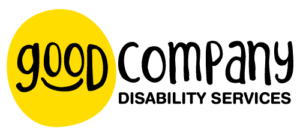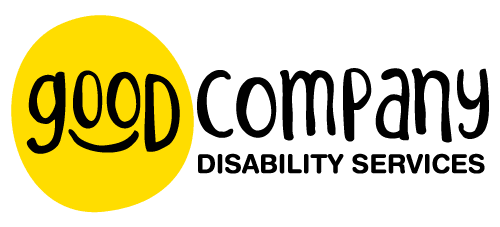Cultural Safety Policy
Good Company Disability Services Pty Ltd
Effective Date: 29 May 2025
Review Date: 29 May 2026
Contact: he***@***************om.au
Acknowledgement of Country
Good Company Disability Services acknowledges the Traditional Custodians of the land on which we work and support participants. We pay our respects to Elders past and present and recognise their enduring connection to culture, community, and Country. We are committed to walking together toward reconciliation and cultural justice.
Purpose
This policy outlines Good Company’s commitment to providing culturally safe, inclusive, and respectful disability support services. We recognise and value the cultural identities of all participants, including Aboriginal and Torres Strait Islander peoples, culturally and linguistically diverse (CALD) communities, LGBTIQA+ individuals, and people of diverse faiths and worldviews.
Cultural safety is essential to uphold human rights, ensure equitable access, and build environments where all people feel respected, safe, and understood.
Scope
This policy applies to:
All staff, support workers, contractors, and volunteers
All participants, carers, families, and advocates
All operational settings including homes, community settings, and digital platforms
Definitions
| Term | Definition |
|---|---|
| Cultural Safety | An environment that is spiritually, socially, emotionally, and physically safe, where people’s cultural identity is respected and not challenged. |
| Cultural Competence | The ability to understand, communicate with, and effectively interact with people from diverse cultures. |
| CALD | Culturally and Linguistically Diverse – individuals from non-Anglo cultural backgrounds or with languages other than English. |
| Intersectionality | The overlapping or interconnected nature of identities (e.g., race, disability, gender, sexuality) that shape unique experiences. |
Guiding Principles
Respect for Identity – All cultural beliefs, languages, practices, and traditions are honoured.
Equity and Inclusion – We recognise systemic barriers and commit to reducing them.
Lifelong Learning – Cultural safety requires ongoing reflection, listening, and learning.
Human Rights-Based Practice – Our approach is informed by the United Nations Convention on the Rights of Persons with Disabilities (UNCRPD).
Choice and Control – Participants lead decisions about how cultural needs are respected.
Commitments to Cultural Safety
For Participants
We record details provided about cultural needs and preferences during intake and reviews
Participants can choose culturally appropriate workers wherever possible
Cultural goals are included in participant support plans where requested
Any cultural concern or barrier is addressed promptly and respectfully
For Aboriginal and Torres Strait Islander Peoples
We acknowledge the traditional custodians of the land on which we work and support NDIS participants.
We engage with local Elders and Aboriginal Community Controlled Organisations (ACCOs) where requested by participants
We follow kinship and community protocols where requested by participants and in line with the NDIS Code Of Conduct and applicable laws in which we are providing our services
We support healing-informed and culturally grounded practices where requested by participants and in line with the NDIS Code Of Conduct and applicable laws in which we are providing our services
For CALD and Multilingual Communities
We provide information in Easy Read formats where requested
We respect cultural beliefs around disability, health, and communication
We deliver supports free from bias or stereotyping
For LGBTIQA+ Participants
We use inclusive language and respect pronouns
We support gender identity, transition, and family diversity
Staff receive training in inclusive and affirming practice where applicable to the participants they are supporting
Culturally Safe Practice in Action
Examples include:
Supporting prayer times or sacred practices
Using visual tools or communication in first languages where requested and with guidance provided by participants’ therapists
Allowing family or community members to be part of decision-making
Celebrating cultural events or milestones that matter to the participant, where requested
Participant Voice & Co-Design
Good Company recognises that people with lived experience of disability and culture are best placed to guide what cultural safety looks like.
We are committed to:
Consulting with participants and families from diverse backgrounds
Including cultural representatives in program development and review where possible
Listening to feedback and making improvements together
Inclusive Workforce & Representation
We aim to build a workforce that reflects the diversity of the communities we serve.
We are committed to:
Inclusive recruitment practices
Encouraging applications from Aboriginal and Torres Strait Islander peoples, CALD communities, and LGBTIQA+ individuals
Creating a safe and respectful workplace for staff of all backgrounds
Training and Development
Relevant staff receive cultural awareness training and/or guidance
Annual refreshers cover:
Aboriginal and Torres Strait Islander cultural frameworks
Working with CALD, refugee, and emerging communities
LGBTIQA+ inclusive practice
We update training based on participant feedback and community guidance
Accessibility and Communication
To ensure all cultural groups can access services:
Information can be made available in translated, Easy Read, or large print formats
We respect different communication styles, including non-verbal, assisted, or visual modes
Feedback and Complaints
Participants can raise cultural concerns through:
Speaking to a worker or coordinator
Submitting feedback in their preferred language
Using an advocate or interpreter
Emailing: he***@***************om.au
All cultural safety concerns are taken seriously and addressed promptly.
Monitoring and Evaluation
We track progress in cultural safety through:
Cultural goals included in support plans
Participant feedback and complaint trends
Internal audits and annual reviews of this policy and related procedures
Regular reporting to the leadership team and board
Related Policies and Documents
Participant Rights and Advocacy Policy
Safeguarding & Risk Management Policy
Complaints and Feedback Policy
NDIS Code of Conduct
Review
This policy will be reviewed:
Annually
Following participant or community feedback
After any concern raised about cultural discrimination or harm
In line with updates to law or sector standards
Cultural safety is everyone’s responsibility.
At Good Company, we believe that diversity is not just respected — it is celebrated.
We walk alongside each participant, upholding their right to feel safe, valued, and culturally respected at every step.

